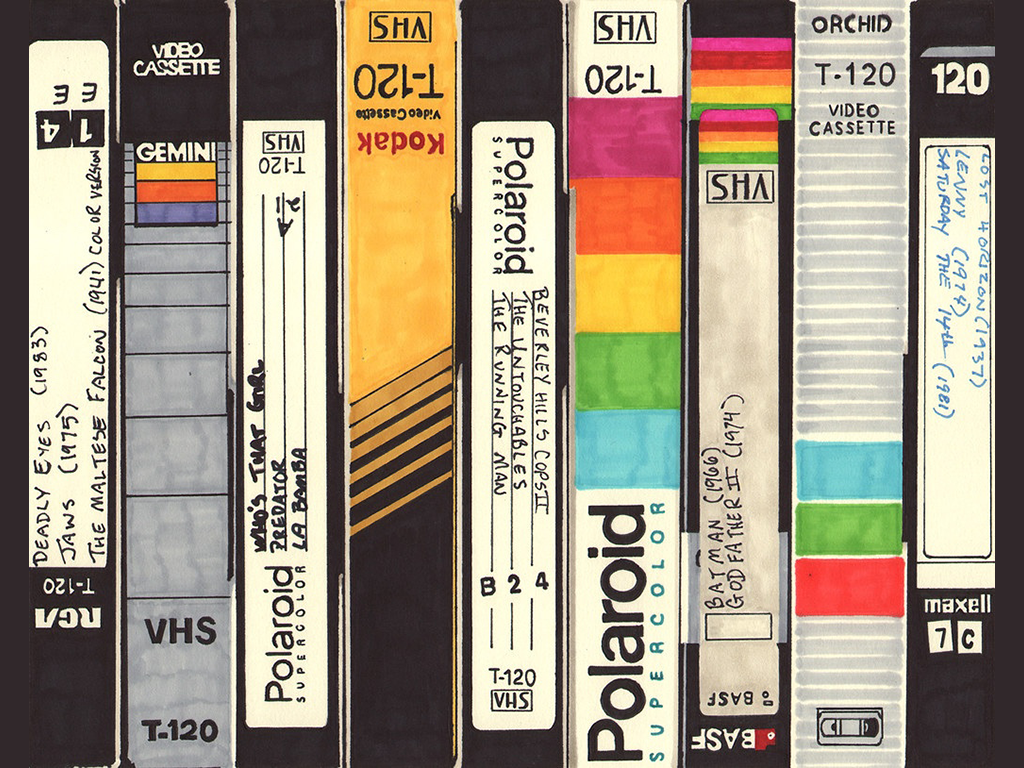I'm going to be honest: I am not doing great. My husband, an anesthesiologist in his final year of residency, will spend at least three weeks in the hospital's COVID-19 unit starting Monday. If anything happened to him, I don't know what I would do. I keep looking at the statistics and telling myself that he's young, healthy, and will probably be okay even if he does contract the virus; however, it's hard to ignore the stories about healthcare workers dying.
I'm furious with Donald Trump and all of the Republicans who knew about the virus months ago and refused to act with common sense. Even last week, when the situation was obviously dire, Cheeto Fuckface was spouting off nonsense about getting the country, "opened up and just raring to go by Easter." What kind of glue is this imbecile sniffing? If COVID-19 has proven anything, it's that America is broken at a fundamental level. We have elected a toddler president who has finally fulfilled his prophecy by running everything straight into the ground. Let's all take a break for one second and let out a collective, cleansing scream.
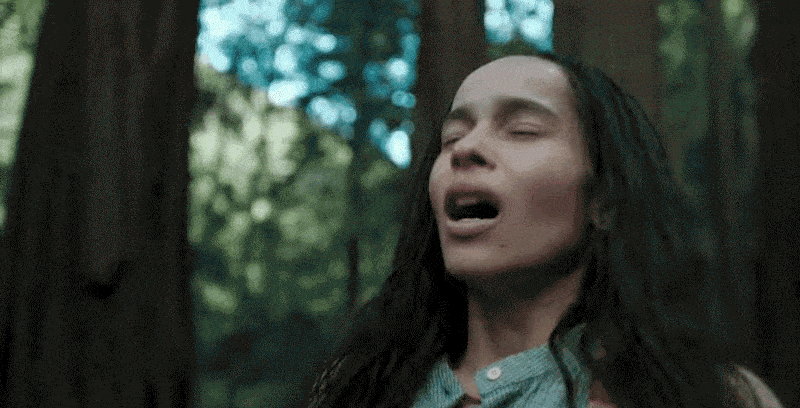
It's important that we talk about how fucked everything is, but that's not why I'm writing this. I want to remind everyone (including myself) that there are small ways to find joy, even as the world around you disintegrates. No matter how horrible I'm feeling, movies are always able to pull me out of my funk. Many of my pivotal memories are centered around the magic, alternate dimension brought to life by flickering celluloid.
[Or, you know ... a computer screen. As much as I like to romanticize this shit, everything is digital now and who the fuck am I kidding?]
Over time, movies have become my most successful coping mechanism. If I'm feeling sad and helpless, "Kiki's Delivery Service" (1989) is a reliable mood elevator. If I want something to remind me of my mom, I turn on "The Devil Wears Prada" (2006) or "How to Lose a Guy in 10 Days" (2003). "The Goonies" (1985) and "Fargo" (1996) bring back snippets of bad decisions I made in college. "La Chinoise" (1967) transports me to the night I thought it was a good idea to get drunk and walk nine miles home from the Upper West Side to Brooklyn.
In a few years, maybe I'll look back on this tough time and think about how Bette Davis (and lots of edibles) helped me narrowly dodge a full-on nervous breakdown. In the meantime, I'd like to revisit some movie memories from the past that make me feel hopeful for the future.
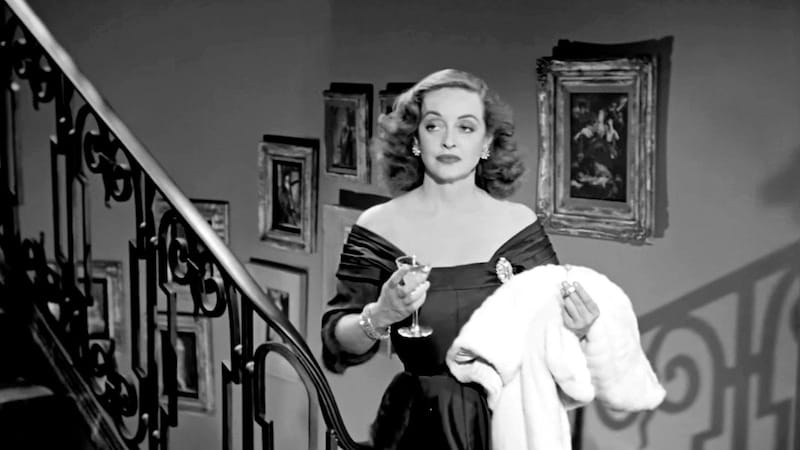
My first real movie memory centers around my dad, whom I haven't spoken to in eight months. Although we were close when I was a child, he stopped trying to connect with me past the age of ten. I still love him and believe that he's a fundamentally good person but refuse to pretend we have a close relationship just because we're blood-related. We have a complicated history that isn't all warm and fuzzy.
I could write an entire separate essay on this topic (and maybe someday I will), but just know that my dad comes from a time when men only had one responsibility: to provide for their families. Love and attention were never as important to him as making money, a fact that I always knew and could never ignore. I’m very thankful that he worked hard and paid for my college, but I’ll never forgive him for making me walk on eggshells in my own home for at least a decade, just waiting for him to snap over the mildest indiscretion. I would have rather had a dad who spent time with me and embraced my interests instead of a shadow figure who paid for shit and then isolated himself in the back bedroom.
Despite the obvious tension, there were nice moments. When I was three or four, I remember being sick and laying on the hideous brown floral couch that my parents used to have in their living room. My dad came in and spent the entire day with me, alternating cartoons and Shirley Temple movies. He never made me feel like he was bored or didn't want to be there. My dad, a crane operator in a steel mill, laid there and laughed for hours at the Pink Panther's hijinks and Temple's tap dance routines. No matter what happens between us in the future, we had a good day together.
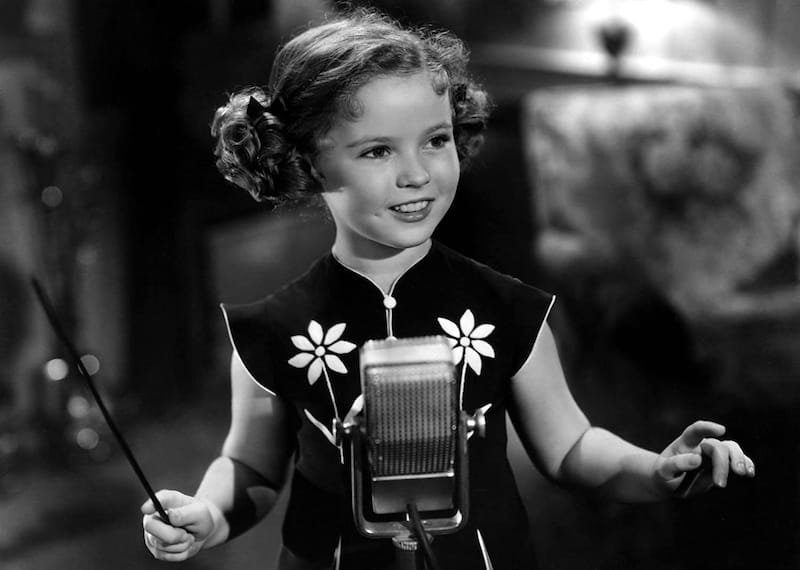
In high school, I spent much of my time pretending to like movies that didn't actually resonate with me because I wanted to impress boys. Can you fucking believe that I watched "Transformers" (2007) in theaters? I also saw (and pretended to like) a lot of Quentin Tarantino films because I thought they made me seem cool and edgy. It wasn't until I discovered Michel Gondry that I really started to love movies.
I grew up in Natrona Heights, PA, a small town about twenty-four miles northeast of Pittsburgh. In retrospect, I find it incredibly depressing; at the time, it was simply a place where I existed until I had the opportunity to leave. For fun, my friends and I would go thrift at Goodwill or check out our local favorite, B&D Records (RIP), a few towns over in Springdale. During B&D's annual summer sidewalk sale, I picked up a copy of "The Eternal Sunshine of the Spotless Mind" (2004). I ended up watching it with a boy at my parents' house, but I can't remember who ... likely one of the Daves, Kurt, or Jon/Tom. The boy, as usual, was unimportant.
What I do remember is feeling like everything I thought I knew about movies was a lie. Movies didn't have to mimic reality; they could subvert it, turn it inside-out, and bring strange thoughts to life. They could be wholly cerebral, without all of the answers. Emotions could be made unshakably real and impossible to ignore. Instead of trying to impress local dirtbags, I would spend the rest of my time in high school alone in my room, alternating trash TV and whatever I could find at Hollywood Video. If chosen wisely, movies could provide more satisfaction than 16-year-old boys who still hadn't figured out how to use their penises.
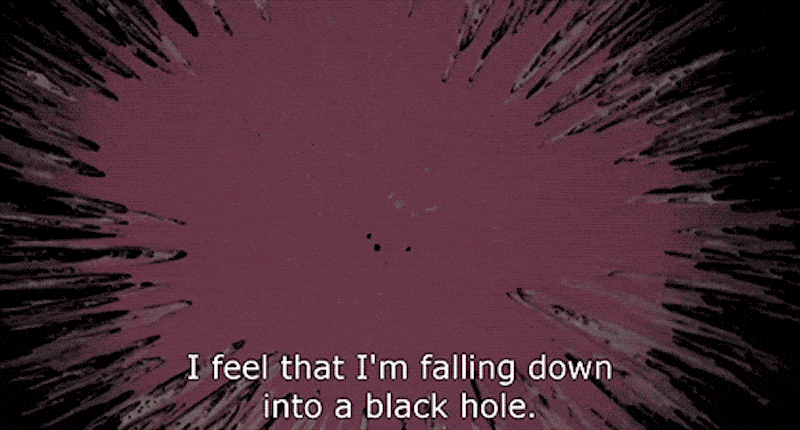
College consisted of lying to people about my workload and staying in to watch movies. Sophomore year was the best because I had a single in the dorms and no one was around to call me out on my bullshit. Don't get me wrong: I spent plenty of time drinking and making bad choices on the weekends, but only because I wanted people to like me. I would have always preferred to stay in bed, watching "Chungking Express" (1994) so many times that I started to believe I could understand Mandarin. College was a time when things started to get really dark for me. I wouldn't have classified it this way at the time, but sophomore year is when I first started to struggle with depression.
I felt misunderstood by everyone. I thought college would be this utopia of learning where I would meet other nerds who liked the same things as me; instead, it was a place where people went to get drunk in filthy houses and rapidly gain twenty pounds from too many waffles. While I certainly remember the countless hours spent watching movies in bed alone, the moment I think about frequently is one of true connection that started years prior when I became friends with Jank.
I was at a party where I didn't know anyone and remember feeling very awkward, pressing myself into the wall of the garage and hoping that no one would notice me. Jank found me, started chatting (probably about opera or books), and we struck up what would turn into a lasting friendship. There was a brief period where we tried to date, but quickly realized that we were much better off as platonic pals. In the summer of 2009, after my sophomore year of college, Jank started to prepare for a move from PA to San Francisco.
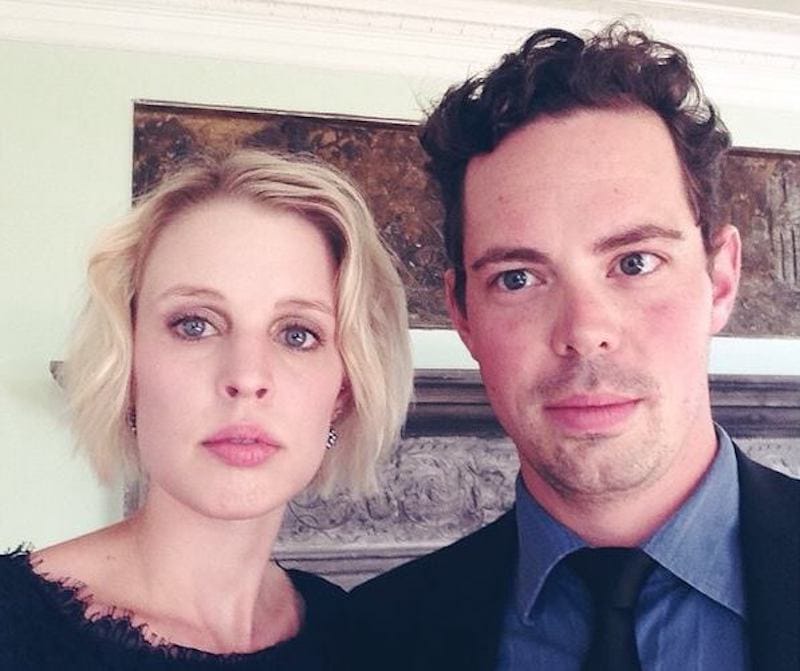
We had plans to hang out one night and ended up meeting at his storage unit, which I remember (maybe incorrectly) as being more like an old barn than a depressing garage space. It was full of books and DVDs, many of which he let me "borrow," aka keep, because they're still in my house today and I have zero intention of ever giving them back. After putting together a box full of Kurt Vonnegut, Jean-Pierre Jeunet, and Neil LaBute, we grabbed a 6-pack of Yuengling and went to his mom's house for a movie.
After much hype from Jank, we settled on "Coraline" (2009). Even on a shitty old Dell laptop, I was immediately transfixed. How many times had I dreamed of finding a secret passage in my house that led to an alternate dimension with another family who understood me? Yes, the other family has creepy button eyes and ends up being evil, but Coraline is in heaven for a few scenes. More than any other, this movie perfectly aligns with my own aesthetic sensibilities. I would love to live in a pink Victorian fixer-upper in the rainy Pacific Northwest with a sardonic black cat. Where do I sign up?
Along with discovering a beloved movie, this night stands out to me as a reminder of how nice it feels when a friendship is solidified. Even though Jank was moving across the country, I knew that we would be friends forever. It's not often that you find someone from the small towns of Western PA who enjoys opera, single origin coffee, and stop-motion animation. Magical people often appear in the most unlikely places; when they do, you must hold tight and refuse to let go.
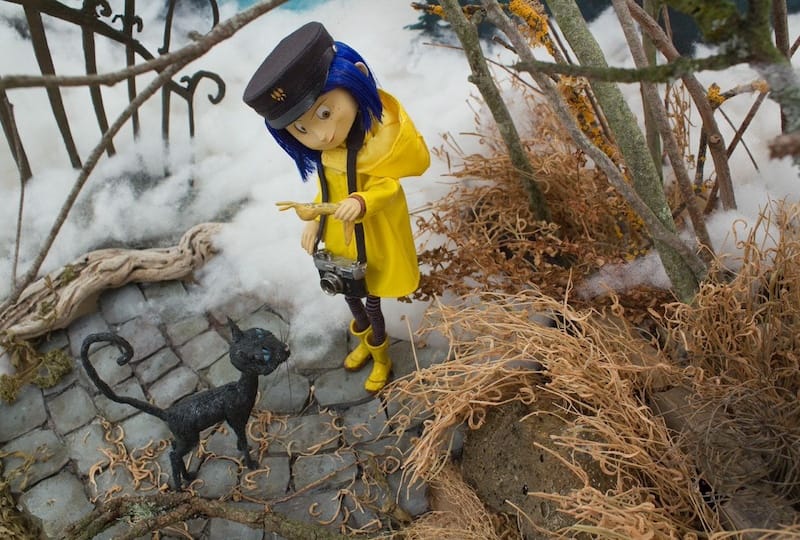
Like Jank, I got the fuck out of Western PA after college graduation. If I could go back in time, I would advise myself to live at home for at least a year and save up as much money as possible before moving. Because I was a twenty-one-year-old moron, I didn't do any of that. I moved to Brooklyn with paltry savings, took a minimum wage job in retail, and pursued an expensive graduate degree that I would spend the next seven years deeply regretting. I still don't understand how I managed to make rent every month because my checking account was always almost overdrawn. I went on a lot of Tinder dates and let clueless dudes pay for meals and drinks without the slightest bit of guilt. It felt like a small bit of justice after centuries of repression and wage theft.
After breaking off a bad relationship with a trust fund cokehead (with a penchant for EDM and tank tops) and securing a marginally higher-paying job in publishing, things started to get better. I adopted an adult tuxedo cat named Eloise who, yes, enjoyed pooping on the floor but would occasionally join me in bed as the little spoon. That tiny crumb of affection makes the floor dumps worth it, right? After finding Wheeze on Labor Day, I met Luke, my now-husband, on New Year's Eve.
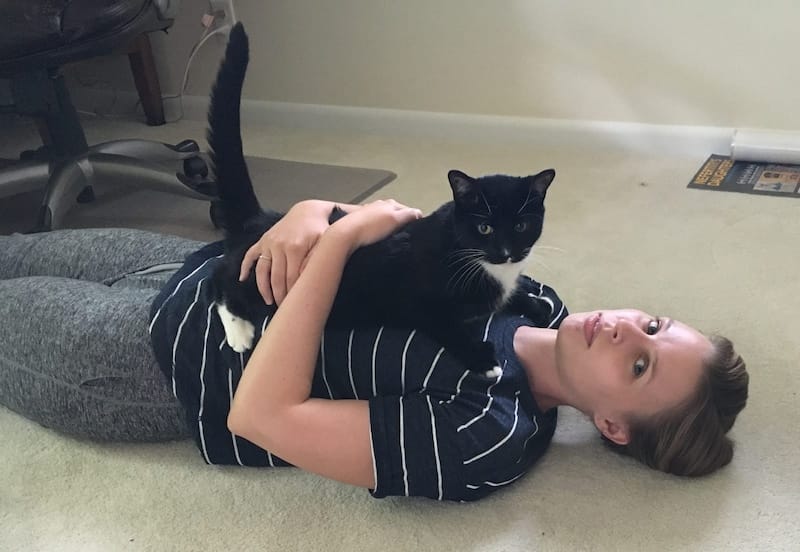
At the time, Luke was in his third year of medical school at Penn State. He was in town with two of my friends from college (his friends from med school) who were staying at my apartment. We both had separate plans and didn't spend NYE together, but several alcohol-fueled text messages were exchanged. We talked for hours the next morning on the crummy floor of my kitchen while I focused on not vomiting. I found out that he was an older student (thirty-three at the time) who had an entire career building chimneys before deciding to go back to school. I found this insanely attractive and inspiring, even after he told me that he thought the career shift may have been a mistake. He missed his hobbies – reading, beekeeping, playing violin – and having autonomy over his life.
We continued talking after he went home to Hershey, and I planned to visit him/my college friends later that month. Things escalated quickly during that visit thanks to an edible that knocked me into the weed version of a k-hole. While chatting in his room, Luke asked if I wanted a random weed cookie from the depths of his freezer. He told me that he wasn't sure how potent it would be because it had been in there for a while. Like a dumbass, I ingested the entire thing as he watched in mild horror. As anyone experienced with edibles might have guessed, this was a grave error. "I've been smoking occasionally for years. This will be fine," I told myself. Spoiler alert: it was not fine!
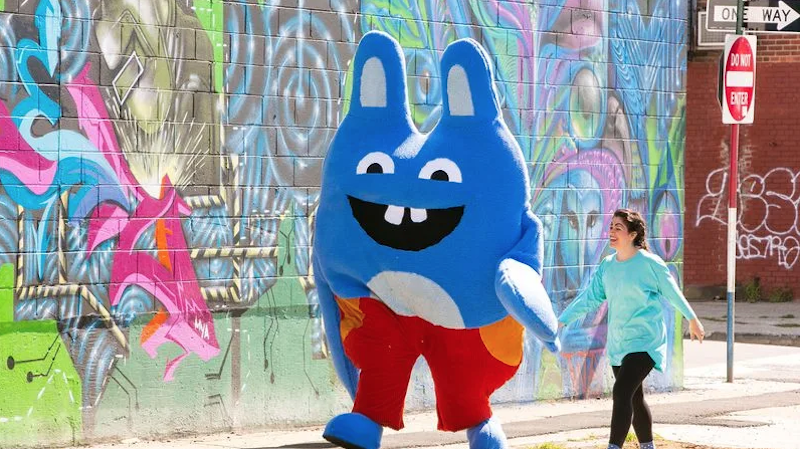
I was at Chocolate World with friends (sans Luke) when the edible hit. I got the worst cotton mouth I've ever experienced and felt certain that the ride's animatronic cows were going to come to life and enact vengeance for all of the cheeseburgers I had eaten. Later at Tröegs Brewery, I was on the brink of fainting. Everything started to go black and I remember my friend Katie hopping into full mom mode and ushering me outside. Stringing multiple words together was tough, but I managed to text Luke and tell him that I was freaking out and needed him to come sit with me. While everyone else watched "Pitch Perfect" (2012), we played Two Dots on my phone.
When I started feeling like a human again, we went over to his place (which was two doors down from my friends' house) to watch a better movie. In 2015, my compatibility litmus test was undoubtedly "Frances Ha" (2012). I made all of my friends watch it; if they didn't like it, I concluded that they must have judgement-impeding brain parasites. How could anyone dislike a beautifully shot and acted film about love, friendship, and balancing practicality with creativity? If someone tells me that they find Frances "annoying," I automatically assume we have nothing in common. They're probably the same people who refused to vote for Hillary because "there's just something about her that I dislike." After my wasted year with Tank Top, these precautions felt necessary.
Luckily, Luke passed the test and I slept at his house that night. From the moment I met him, I could tell that he was calm, intelligent, and trustworthy ... the exact type of person you'd want with you in a crisis. It's weird to meet someone and immediately know that you'd trust them with your life, but that's exactly how I felt. From the very beginning, there were never any games in our relationship. Everything was straightforward and honest. After a few months of dating, I told him that I would marry him "anytime" as he drove me to the train station. Instead of freaking out like I probably would have, he just smiled.
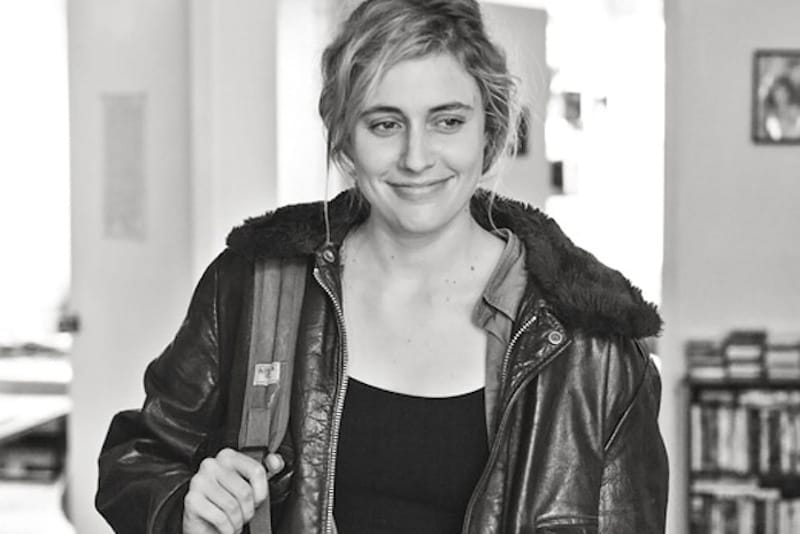
In our 5+ years together, we've watched countless other movies. Early in the relationship, I was forced to watch "The Assassination of Jesse James by the Coward Robert Ford" (2007) and "Amadeus" (1984). Both were excellent and gave me confidence that I wasn't dating someone with horrible taste. I made him watch "The Rider" (2017) and "Everyone Else" (2009), prompting long conversations about toxic masculinity and the gender binary myth. Every moment – both amazing and shitty -- can be categorized by movies.
When Donald Trump won the election in 2016, I remember sitting on my couch alone in stunned silence. Luke was sleeping because he had to work early the next morning, but I ended up lying awake for most of the night, crying while "Funny Face" (1957) flickered on in the background. As someone with a propensity toward anxiety and depression, I couldn't shake the feeling that this election was going to lead to the end of the world. The next three years felt like a waiting game, just watching as the Doomsday Clock moved closer to midnight. I figured nuclear war was on the horizon, but never suspected a global pandemic.
But that's where we are. Thousands of people are dying, and Trump doesn't give a shit. He'd rather blather on about his ratings than work on getting hospitals the equipment they desperately need to fix his colossal mess. My husband and many others who did not sign up for this are now on the front lines. I know the statistics are in his favor, but I'm unable to stop ruminating on the worst possible outcome.
What if Luke dies and I'm left here, trapped in my house, unable to mourn with family and friends? In a single moment, everything that was previously good and joyful could easily turn to shit. I don't think anything on this planet is powerful enough to eradicate a loss like that, even the passage of time. My already fragile mental state would be pushed to the outer limits, threatening to completely crumble at any second. I've thought about this for weeks, running through different scenarios of how I might equip myself to handle that type of tragedy.
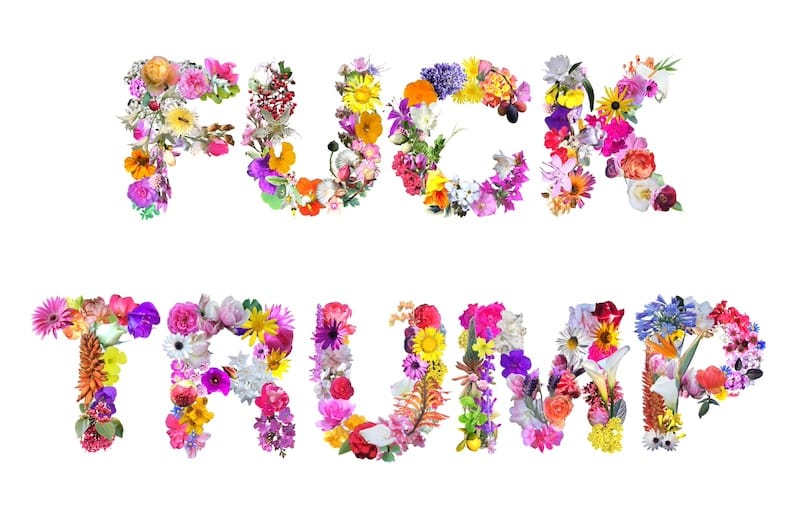
Per usual, movies are the only thing making me feel better. Witnessing the creativity and resilience of other people is inspiring as hell. After Jacques Demy's death, Agnès Varda made three films as tribute. One of them, "Jacquot de Nantes" (19991), is an expression of love so pure that it's impossible to watch without crying. Barbara Loden made "Wanda" (1970) on a scant budget under the guise of a spouse (that motherfucker Elia Kazan) who severely underestimated her. Documentary cinematographer Kirsten Johnson pieced together outtakes from previous projects around the world to create "Cameraperson" (2016). She took scenes of pain, loss, and tragedy – both personal and universal – and combined them to create a beautiful rumination on memory.
It's been fortifying to see so many people donate to fundraisers for independent movie theaters and their employees. Our government may be useless, but people constantly surprise me with their willingness to help pick up the pieces. If anything good comes out of this, maybe it will be the mass realization that art has immense societal value and should be given more emphasis and funding. Maybe workers will unite and demand pay equity, pushing for the progressive change that we desperately need. Instead of letting despair get a stranglehold on me, I choose to remain hopeful ... that the country will recover, my husband will not die, and Trump meets the butthole spiders in the Bad Place.

